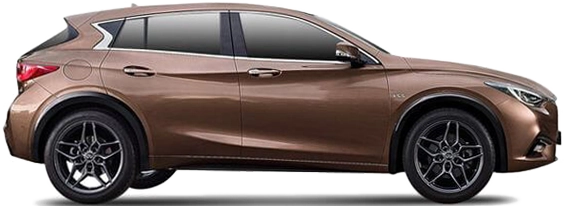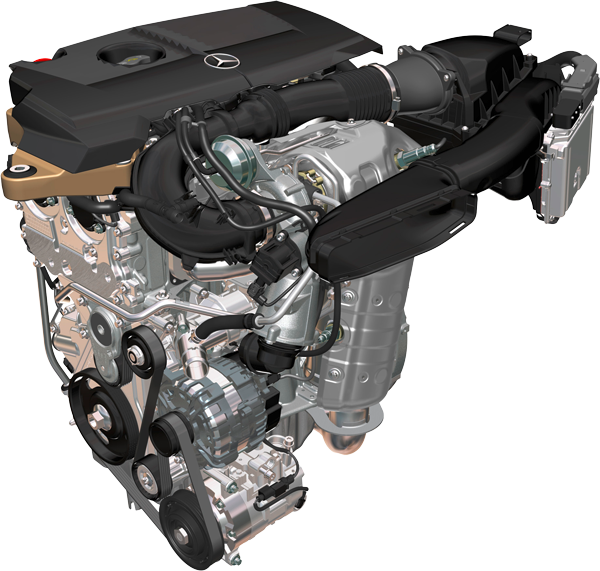The Comparative Analysis :
Infiniti Q30 1.5d DCT (16 - 18) vs. Infiniti Q30 2.0t AWD DCT (16 - 20)
€ 31,900

€ 40,300

€ 31,900
Base Price ⓘBase price of a new vehicle with standard equipment in Germany at market launch.
€ 40,300
ⓘBase price of a new vehicle with standard equipment in Germany at market launch. Price Info
Vehicle Dimensions
Тhere is barely any difference in dimensions between the two vehicles. Both cars are the same length and width, but the Q30 1.5d is 2 cm taller.
Q30 1.5d
Q30 2.0t
1495
1805
2083
1475
1805
2083
1805 mm
Width
1805 mm
2083 mm
Width Incl. Mirrors
2083 mm
1495 mm
Height
1475 mm
2700
4425
2700
4425
4425 mm
Length
4425 mm
2700 mm
Wheelbase
2700 mm
Vehicle Weight
Q30 1.5d
Q30 2.0t
1497 kg
Kerb Weight
1545 kg
1960 kg
Gross Vehicle
Weight
Weight
1990 kg

Weight Difference:
48 kg
3.11 %

General
Q30 1.5d
Q30 2.0t
H15
Generation
H15
Hatchback
Car Body Style
Hatchback
Diesel
Fuel Type
Unleaded (95 RON)

Front-wheel drive
Drive
Permanent all-wheel drive

7-speed dual clutch transmission
Transmission
7-speed dual clutch transmission
Engine
Q30 1.5d
Q30 2.0t
Straight-four diesel engine with turbocharger
Engine Type
Straight-four petrol engine with turbocharger
Engine Series
Mercedes-Benz M 270
Engine Code
270920

4
Valves
4
4
Cylinders
4
1461 CC
Engine Capacity
1991 CC
108 bhp
at 4000 rpm
Power
208 bhp
at 5500 rpm
Q30 1.5d
108 bhp
208 bhp
Q30 2.0t
260 NM
at 1750 rpm
Max. Torque
350 NM
at 1200 rpm
Q30 1.5d
260 NM
350 NM
Q30 2.0t
Performance
Q30 1.5d
Q30 2.0t
118 mph
Maximum Speed
143 mph
11.9 sec
Acceleration 0 to 62 mph
7.3 sec
62 mph
62
mph
mph
165 m
0.000 sec

Q30 1.5d
62 mph
62
mph
mph
101 m
0.000 sec

Q30 2.0t
▶ REPLAY
13.86 kg/bhp
Weight-to-Power Ratio
7.43 kg/bhp
Q30 1.5d
13.86 kg/bhp
7.43 kg/bhp
Q30 2.0t
Fuel Economy / Emissions
Q30 1.5d
Q30 2.0t
Fuel Economy
66 mpg
combined
42 mpg
Q30 1.5d
66 mpg
42 mpg
Q30 2.0t
60 mpg
city
32 mpg
71 mpg
motorway
51 mpg
50 L
Fuel Tank Capacity
56 L
723 mi
Range
519 mi
Q30 1.5d
723 mi
519 mi
Q30 2.0t
Environmental Impact
88.5 kWh
Total Energy Consumption
per 100 miles ⓘThe total energy consumption per 100 miles is the amount of energy consumed by a vehicle when burning fuel or using electricity per 100 miles (final energy), and the energy required to produce the appropriate amount of fuel or electricity (primary energy).
per 100 miles ⓘThe total energy consumption per 100 miles is the amount of energy consumed by a vehicle when burning fuel or using electricity per 100 miles (final energy), and the energy required to produce the appropriate amount of fuel or electricity (primary energy).
127 kWh
Q30 1.5d
88.5 kWh
127 kWh
Q30 2.0t
Euro 6b (NEFZ)
Emission Standard
Euro 6
111 g/km (NEFZ)
CO2 Emissions
156 g/km (NEFZ)
Practical Convenience
Q30 1.5d
Q30 2.0t
5
Doors
5
5
No. of Seats
5
463 kg
Maximum Payload
445 kg
430 L
Boot Capacity
430 L










No data
Boot Capacity (Seats Down)
No data
















